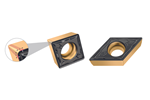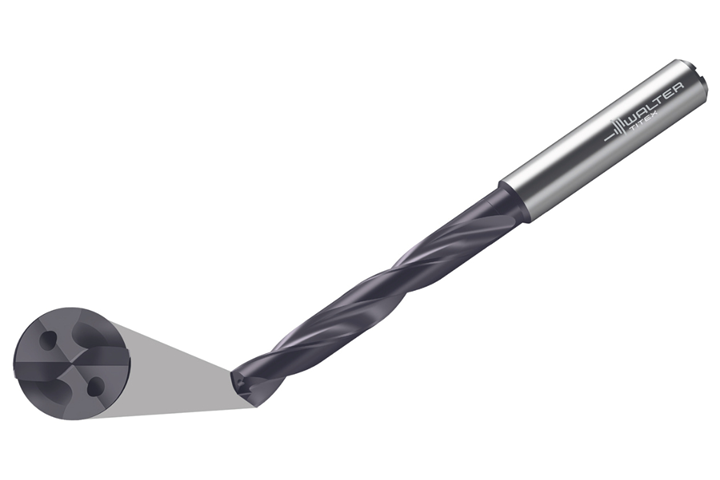Solid Carbide Drill Designed With Mold Machining in Mind
The Walter X·treme Evo Plus DC180 Supreme drill maximizes productivity and process reliability thanks to its Krato·tec AlTiN coating technology.
Walter USA is launching a new tool, the X·treme Evo Plus drill, in the DC180 Supreme product range. Designed to boost productivity and process reliability in mold and die, general mechanical engineering and other applications, the solid carbide drill with internal coolant is highly effective for drilling steels, stainless steels, cast irons, non-ferrous metals, heat-resistant super alloys and hard materials (ISO P, M, K, N, S and H workpiece groups). Being a Supreme category drill, the cutting tool is said to be designed not just with high tool life in mind, but also process parameters and productivity.
Users can achieve maximum productivity with the DC180 drill thanks to its Krato·tec aluminum titanium nitride (AlTiN) multi-layer coating technology, which was specifically developed for drills and reamers. The drill features a straight cutting edge to ensure process reliability and stability and a 140-degree point angle. X·treme Evo Plus is suitable for holemaking with emulsion, oil or minimum quantity lubrication (MQL).
When compared to competing drills, Walter reports a tool life that is about 50% longer. An additional benefit is the DC180 drill’s universal application at high cutting speeds. It is suitable for high production volume applications with a large number of holes.
The WJ30EZ-grade drill comprises a K30F fine-grained carbide substrate and is available in diameters from 0.118-0.787". The DC180 Supreme in dimensions of 3 × Dc is in accordance with the DIN 6537 short standard, and the DC180 Supreme in dimensions of 5 × Dc is in accordance with the DIN 6537 long standard.
Related Content
-
How to Overcome Deep-Hole Drilling Obstacles in Mold Machining
Keep up with the newest tooling innovations to overcome holemaking and finishing challenges.
-
Treatment and Disposal of Used Metalworking Fluids
With greater emphasis on fluid longevity and fluid recycling, it is important to remember that water-based metalworking fluids are “consumable” and have a finite life.
-
Ten Things You Need to Know about Circle Segment Milling
Considerations for evaluating if circle segment end mills or conical barrel cutters are right for your mold machining applications.










.png;maxWidth=300;quality=90)


